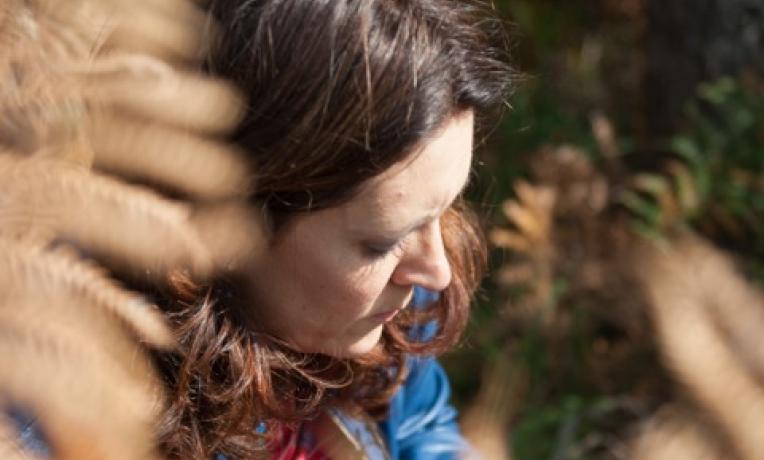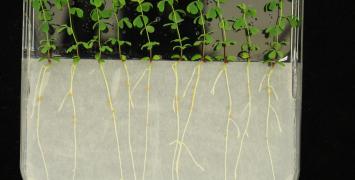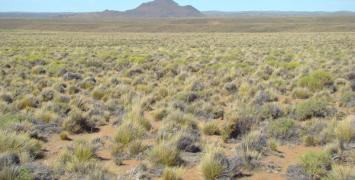Bottom up climate change research
The increase of carbon dioxide (CO2) in the atmosphere as a result of human activity is impacting the natural carbon cycle, modifying how the element travels between land and atmosphere. How will our future climate impact this exchange? How will ever-growing concentrations of greenhouse gases influence future biosphere CO2 fluxes? The answer may lie at our feet; in the soil beneath us.

Dr Lisa Wingate studies different soil systems from across Europe, developing models to mimic the functioning of soil micro-organisms, their reaction to changes in climatic events, and how their enzyme activity modifies the atmosphere's chemistry. Integrating this into models can help us understand the complex links between CO2 increase, biosphere function and climate. Through the ERC project SOLCA, she investigates the role of a previously overlooked enzyme, carbonic anhydrase, in speeding up - or slowing down - the exchange of CO2 and other greenhouse gases in soil.
This process is not simple. Different environmental conditions, acidity, humidity and temperature, can impact the enzyme's concentrations in soil. This is why Dr Wingate uses data from many different biomes around the world. Soil biodiversity, which includes organisms ranging from bacteria to mosses, and from fungi to liverwort plants, also changes how much carbonic anhydrase is in the ground. This is why she studies and sequences biodiversity in a range of samples, to understand its variability alongside the soil ‘community’ carbonic anhydrase activity.
With ERC support, Dr Wingate equipped her laboratory with state-of–the–art instruments and established an interdisciplinary team of gas specialists, climate modellers, microbial and plant biologists and geneticists, to tackle these ambitious research questions. The SOLCA project, now in its final year, has developed more realistic models, and tested new measurement techniques to understand soil-atmosphere exchanges of gases such as carbon dioxide and carbonyl sulphide, that play a key role in climate change. The team collaborates with a global network of scientists to investigate the problem on a scale larger than ever before. Dr Wingate's research could revolutionise environmental ecology by showing that studying organisms at a micro-level can provide important clues about climate change at a global level.






